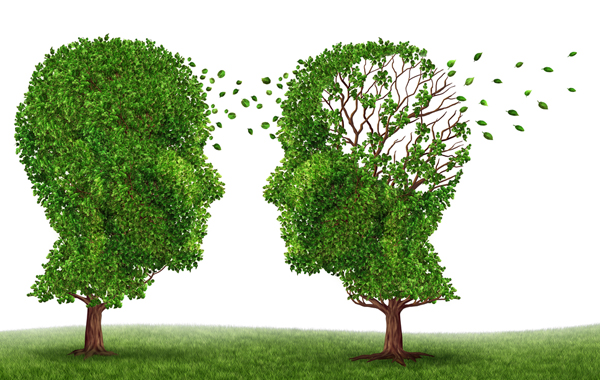Tunes help calm patients, bring back old memories
Linda Kellar seemed too young for dementia, the slow-forming disease that erodes the memories of people usually much older than the then-54-year-old housewife.
But in 2009 that’s what doctors found to be the cause of Kellar’s severe agitation, memory loss, sleepless nights, babbling and hallucinations.
Kellar now spends her days at Keswick Multi-Care Center under constant care because of the disease, which has progressed steadily since the diagnosis. Her husband, Arnold, knows that dementia will eventually take his wife’s life. His only hope is to make her last years as comfortable as possible.
That’s why Kellar is found sometimes pacing her room wearing headphones, listening to the Beatles and other music of her generation. She is one of five patients at the assisted-living home using music therapy to help with symptoms of Alzheimer’s and dementia. The hope is to eventually use the technique for all 272 patients at Keswick.
While it won’t restore the memories of patients, listening to melodies throughout the day can help them to cope better.
“I know it’s not going to cure her, but if it has the chance of making her life a little better, I thought it couldn’t hurt,” Arnold Kellar said. “You want somebody to have a certain quality of life.”
Studies have found that music can tap into dormant memories, reminding people of good times in their life. That in turn can calm patients and reduce anxiety. Energetic music may provide an emotional boost and make despondent patients more social.
Listening to music may also release endorphins that help with pain, stress and depression, according to dementia.org.
And the familiarity of the music may make elderly people feel more secure, according to the American Music Therapy Association Inc.
“Because dementia patients lose new memories, everything seems like a new experience, which can cause anxiety.” said Dr. Daljeet Saluja, the medical![]() director at Keswick. “Every time they see someone, it’s like meeting someone new.”
director at Keswick. “Every time they see someone, it’s like meeting someone new.”
Music therapy has recently become popular in senior homes and other medical facilities, where it is also used to treat depression, autism, stroke and other brain conditions.
U.S. Rep. Gabrielle Giffords learned how to talk again partly with the help of music therapy. Giffords couldn’t speak because language pathways in the left part of her brain were damaged. Her music therapist told ABC’s “Nightline” that by layering words on top of melody and rhythm, she trained her brain to use a less-traveled pathway to the same destination.
Jane Haynes, a registered nurse and director of education![]() and staff development at Keswick, decided to bring music therapy to the North Baltimore facility after learning about it at a conference. She watched the video of a New York man so dispirited that he wouldn’t even communicate with his daughter. After listening to Cab Calloway, the elderly man’s whole demeanor changed, Haynes said. When asked questions after listening, he was much more engaged.
and staff development at Keswick, decided to bring music therapy to the North Baltimore facility after learning about it at a conference. She watched the video of a New York man so dispirited that he wouldn’t even communicate with his daughter. After listening to Cab Calloway, the elderly man’s whole demeanor changed, Haynes said. When asked questions after listening, he was much more engaged.
Keswick has tested the concept of music therapy on a handful of patients for six weeks and found success. One man was able to stop taking sleep aids because the music helped calm him and his nights have become less restless.
“We have seen improvements in most all of them to some degree![]() ,” Haynes said.
,” Haynes said.
Doctors realize music therapy won’t work for everyone. Haynes said one patient at Keswick wouldn’t wear the headphones.
Seniors group AARP![]() said its best to use music that is familiar to people. Most people remember tunes from childhood or their 20s, they said.
said its best to use music that is familiar to people. Most people remember tunes from childhood or their 20s, they said.
“What moves me may not move you,” Haynes said.
The music can be used to help seniors with activities, such as getting dressed in the morning or as they are readying for bed at night, AARP said.
Keswick has patients listening to the music through headphones to help block out outside distractions. It’s also more personal, Haynes said. Music therapy has also worked using radio, record and CD players, and other methods.
“We hope this will eventually help all of the residents of Keswick,” Haynes said.
twitter.com/ankwalker

